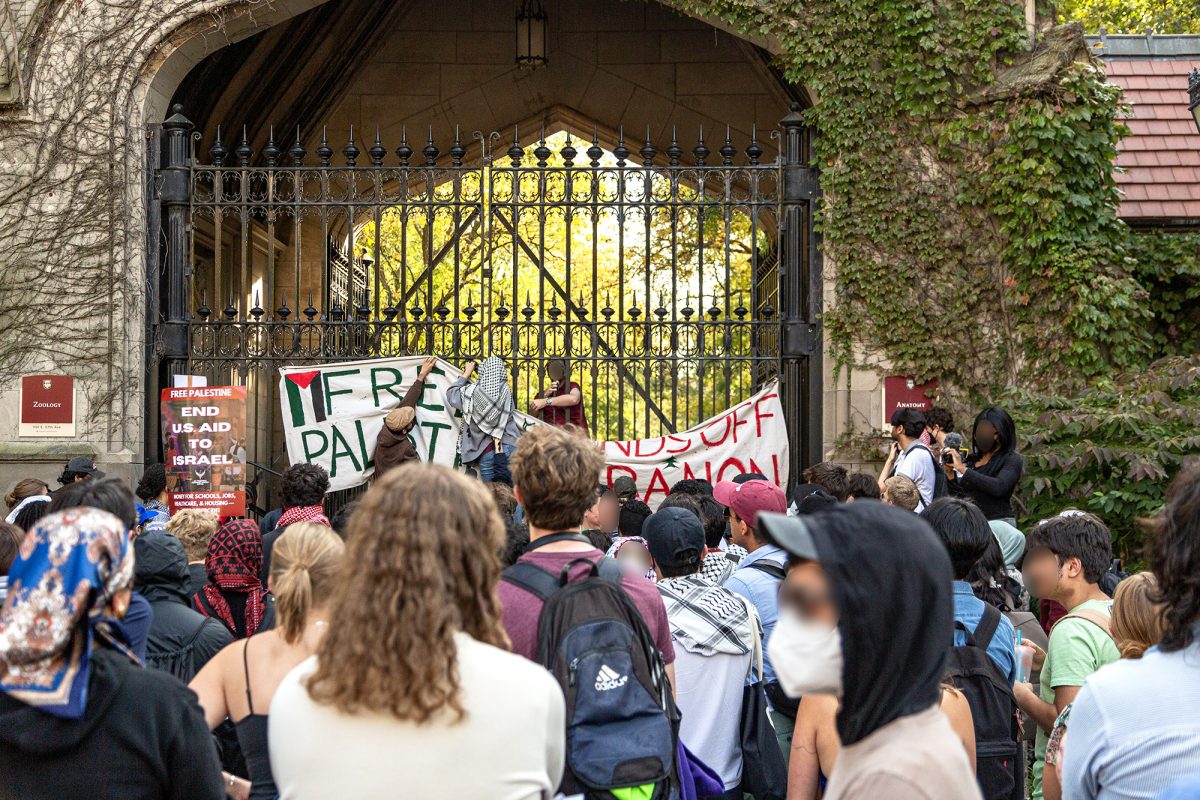Students, faculty, and community members gathered in the International House’s homeroom on Thursday evening to hear Cuauhtémoc Cárdenas, the founder of Mexico’s Democratic Revolutionary Party (PRD), speak his views on the North America Free Trade Agreement (NAFTA). The event was the second lecture in the Center For Latin American Studies’ NAFTA series.
Cárdenas, the former governor of Mexico City and best known in his country for his opposition to one-party politics, recently renounced the leadership of the PRD to concentrate on his campaign for the Mexican presidential election in 2006. The event marked Cárdenas’s third visit in as many years to the University, where he lectured last May and taught as a visiting faculty member in spring of 2003. Cárdenas thanked the University, and said that he was honored to participate in the lecture series.
Cárdenas’ opening remarks on NAFTA were decidedly negative, calling the agreement “a partial, defective, and hasty negotiation.”
“Mexican negotiators were decided to reach an agreement, no matter what quality of an agreement, before the July elections,” he said.
Cárdenas said that he still believes in NAFTA’s potential to open possibilities for social advancement and economic growth, and he emphasized the need to bring about better conditions for Mexican workers. On the positive side of NAFTA’s effects, Cárdenas observed that Mexican exports have more than tripled during the last decade. On the economic downside, Cárdenas noted Mexico’s growing dependency on U.S. foreign investment. Those most adversely affected by NAFTA are rural laborers, who have witnessed a devastating influx of corn, beans and wheat under the trade agreement.
According to Cárdenas, the most serious social effects of the trade aperture are growing poverty rates and the increase of migration to the United States. Mexicans in the U.S. send back $15 annually to their country of origin, and while many politicians view this as a positive supplement to the country’s economy, Cárdenas called it “indicative and worrisome [ ] showing the incapacity of the government to solve the life problems of many Mexicans.”
Cárdenas was clearly concerned with the U.S.’s growing economic dominance in Mexico, particularly with regard to the proposed Free Trade Area of the Americas (FTAA), which he called a “new threat over Mexico and Latin America.” Cárdenas views the FTAA as an initiative to further subordinate Latin American economies to the U.S. economy. He called on countries throughout Latin America and the Caribbean to promote political and economic integration, and to work to establish a fair cooperation with their neighbors to the North—the U.S. and Canada.
Cárdenas also spoke of Mexico’s progress in establishing a true democracy, citing the decline of the country’s once-dominant party, the Institutional Revolutionary Party (PRI). For Cárdenas, however, the gains under the Fox administration have not been satisfactory. Citing an increase of Mexicans living below the poverty line, Cárdenas criticized the government for its failure to generate more jobs. Not only have jobs been lost over the last four years, Cardenas argued that the government has shown itself incapable of creating jobs to keep pace with demand.
As he prepares to campaign for Mexico’s presidency, Cárdenas is focusing on restoring the country’s capacity to make sovereign decisions. “Strong nations protect their producers,” he said. “It is time underdeveloped countries follow the same path, change their development patterns, and propose the creation of a new world order without hegemonies.”
In the question-and-answer session that followed, Cardenas clarified some of his remarks regarding NAFTA’s insufficiencies. “This is what I really criticize – we didn’t do what we should have done during the time of negotiations and it hasn’t been done during the 10 years that NAFTA has been enforced,” Cardenas said. “I think we must participate much more actively, trying to profit from the advantages that we can get in NAFTA.”








